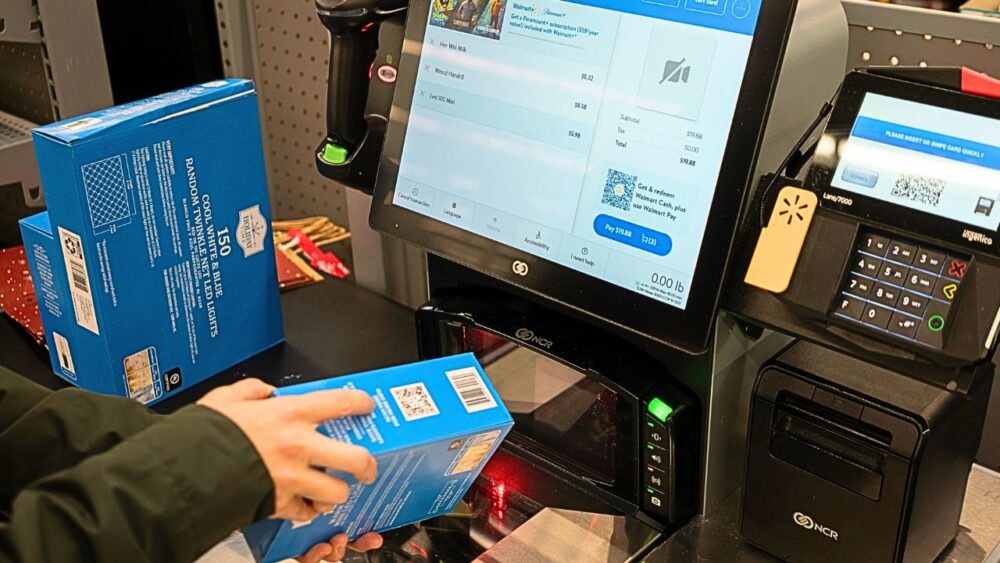A growing number of major retailers are phasing out self-checkout kiosks, with some labor leaders saying this is a rare win for workers and businesses.
Target announced on May 4 that the retail giant will limit self-checkout to customers with 10 items or fewer. The company cited internal tests that showed increased customer satisfaction. However, industry analysts and labor unions say the real driver may be the steep price of retail theft.
UFCW Local 1000, representing grocery and retail workers across North Texas, sees the rollback as a net positive for working families.
“We are happy to see those jobs and hours returned to members of communities who need them,” Jennifer Foley, a representative of United Food and Commercial Workers (UFCW) Local 1000, based in Grapevine, said to The Dallas Express.
“We believe [this] is not a reflection of a change in employers suddenly valuing their employees … but rather a reflection of the theft and money they are losing as a result of the self-checkout machines,” Foley added.
“We do believe that this change will result in increased hours for working Texans,” Foley explained. “It will also be a more balanced approach … managing corporate greed and the perception that these companies had that they could eliminate the investment in human capital and customer experience for added profits.”
Target has struggled with what retailers call “shrink” — losses from shoplifting and inventory errors. The company reported nearly $500 million in shrink-related losses in 2023 compared to the prior year, per Business Insider. Instances of theft in Target and other retailers have repeatedly made headlines since at least the late 2010s.
While Target insists the changes aim to improve customer experience, industry experts point to a pattern. Walmart, Dollar General, and Five Below have also recently rolled back self-checkout systems — often in areas with high theft rates.
Neil Saunders, a retail analyst with GlobalData, told CBS News that self-checkout “is an area of the store people can steal things” and that retailers are making a calculated decision to stem losses.
As some retailers turned against self-checkout almost a year ago, some shoppers pushed back, citing longer lines and the loss of convenience.
“But they aren’t opening more staffed lanes, they’re just making everyone wait longer for the 1 or 2 cashiers,” one Reddit commenter posted.
One X user, Diana Craft, posted an image dated January 4, 2023, of a long line at a Kroger in Dallas. She said the line was due to two self-checkout terminals being closed, although it is unclear why they were closed.
“Dallas Frankfort Kroger at 3:00 pm. Manager needs to open both self checkout terminals, or find a new job,” Craft posted.
Dallas Frankfort Kroger at 3:00 pm. Manager needs to open both self checkout terminals, or find a new job. pic.twitter.com/Je49jsW15C
— Diana Craft (@thrillofdesign) January 4, 2023
Despite the online backlash, retail executives appear to be betting that tightening up loss prevention is worth the inconvenience.
Dollar General announced in April that it would remove self-checkout from 300 stores with the highest theft and cap usage at five items in others. Five Below, whose former CEO Joel Anderson openly cited theft concerns in a 2024 earnings call, is phasing out the technology almost entirely in favor of associate-assisted checkout.
The National Retail Federation estimates U.S. retailers lost $112.1 billion to shrink in 2022. In cities like Dallas, shoplifting surged by 73% in 2023. Meanwhile, in some cities like San Francisco, stolen goods increasingly end up being resold on street corners and alleyways.
The move from automation marks a pivot from the early pandemic years when self-checkout exploded due to perceived health concerns. However, the enthusiasm for unmanned kiosks has decreased as the public has resurfaced from the pandemic’s mandated isolation.
Labor advocates argue that human cashiers offer loss prevention, better service, and community connection.
“We wholeheartedly believe that human cashiers are more effective and valuable than the automated checkout machines,” Foley said. “We believe in the value of the personal relationships that can develop with regular customers and better shopping experience for customers no longer having to bear the burden of navigating the self-checkout process.”


